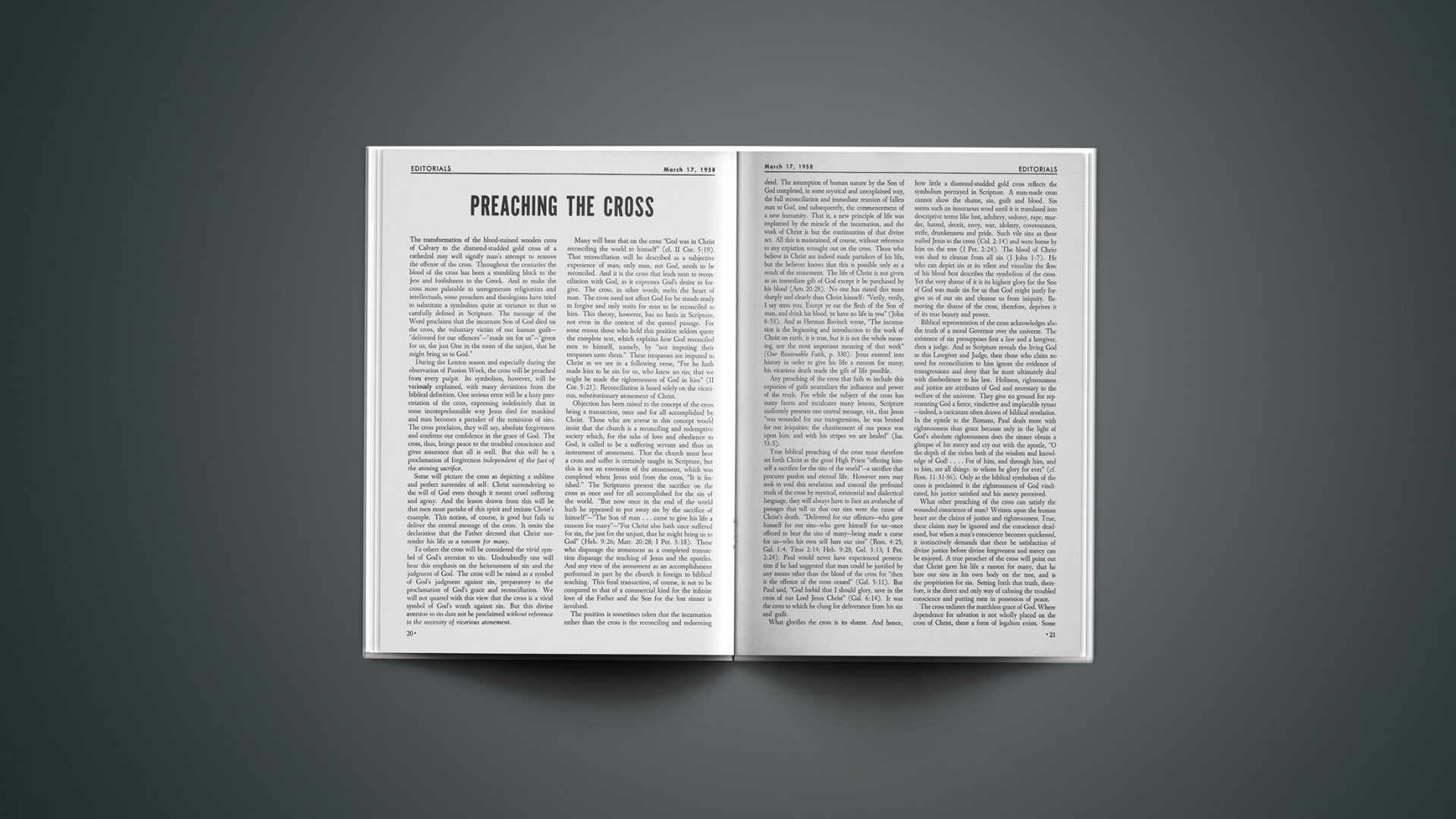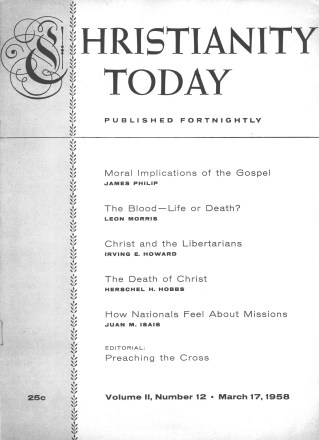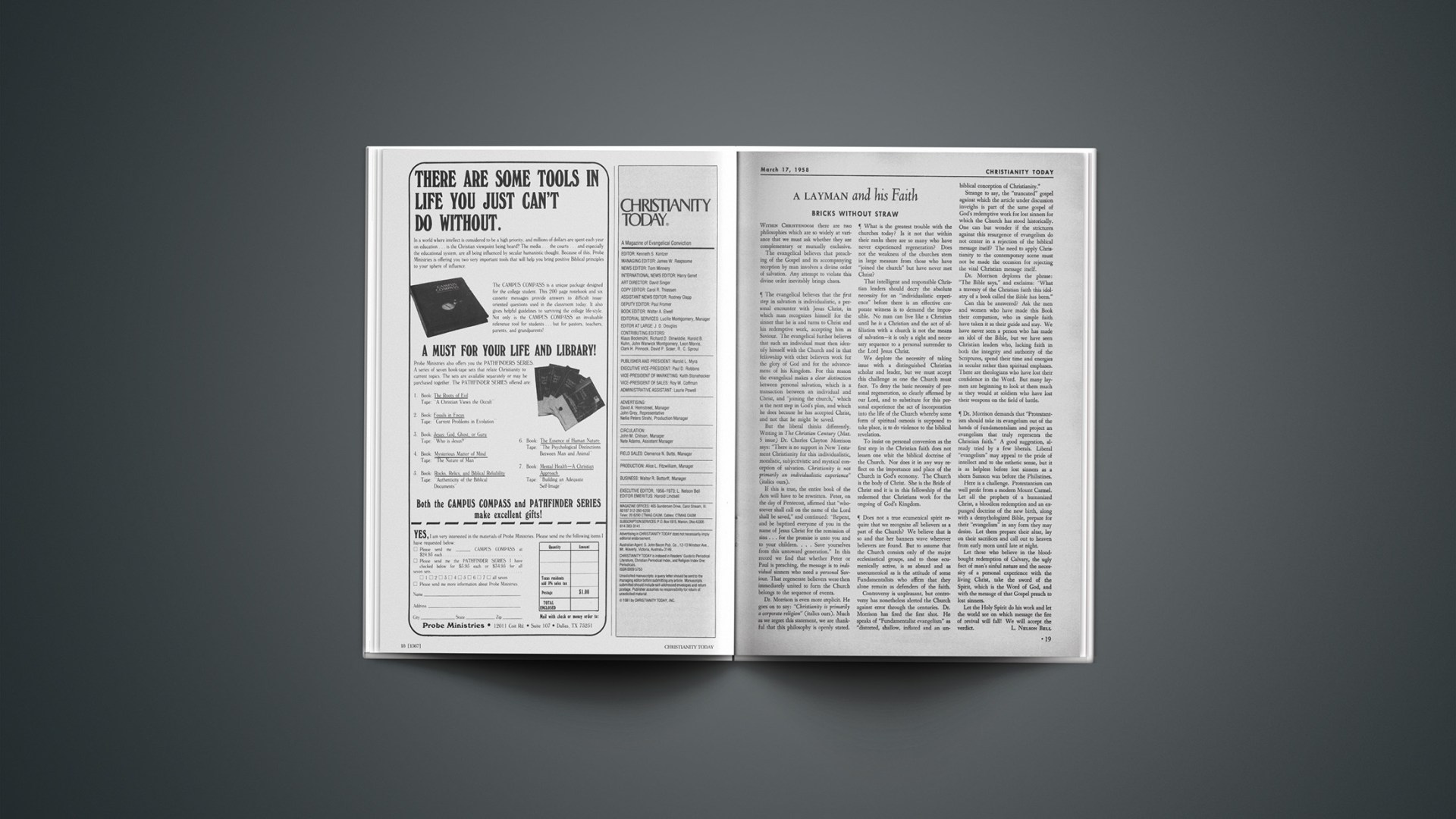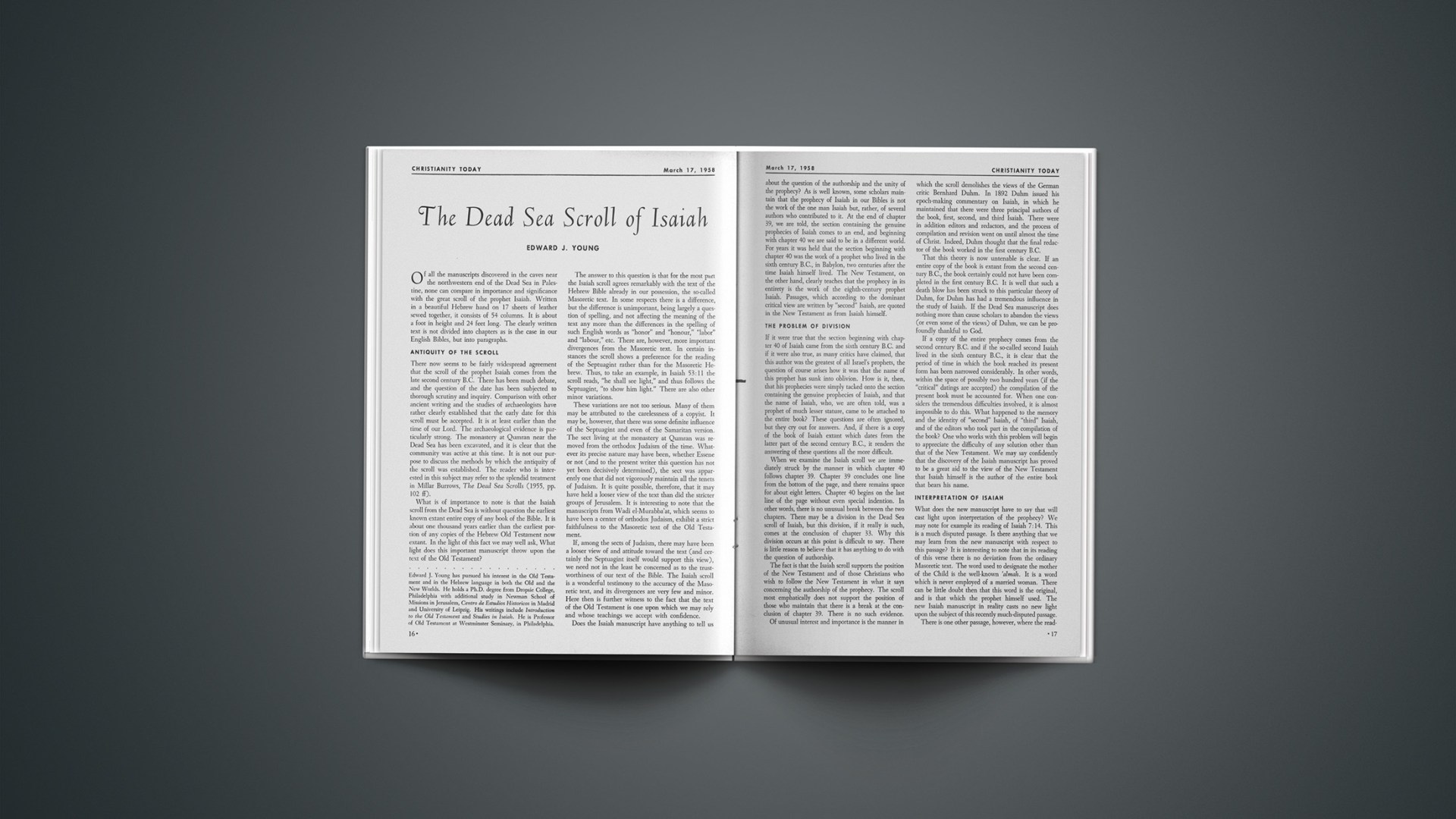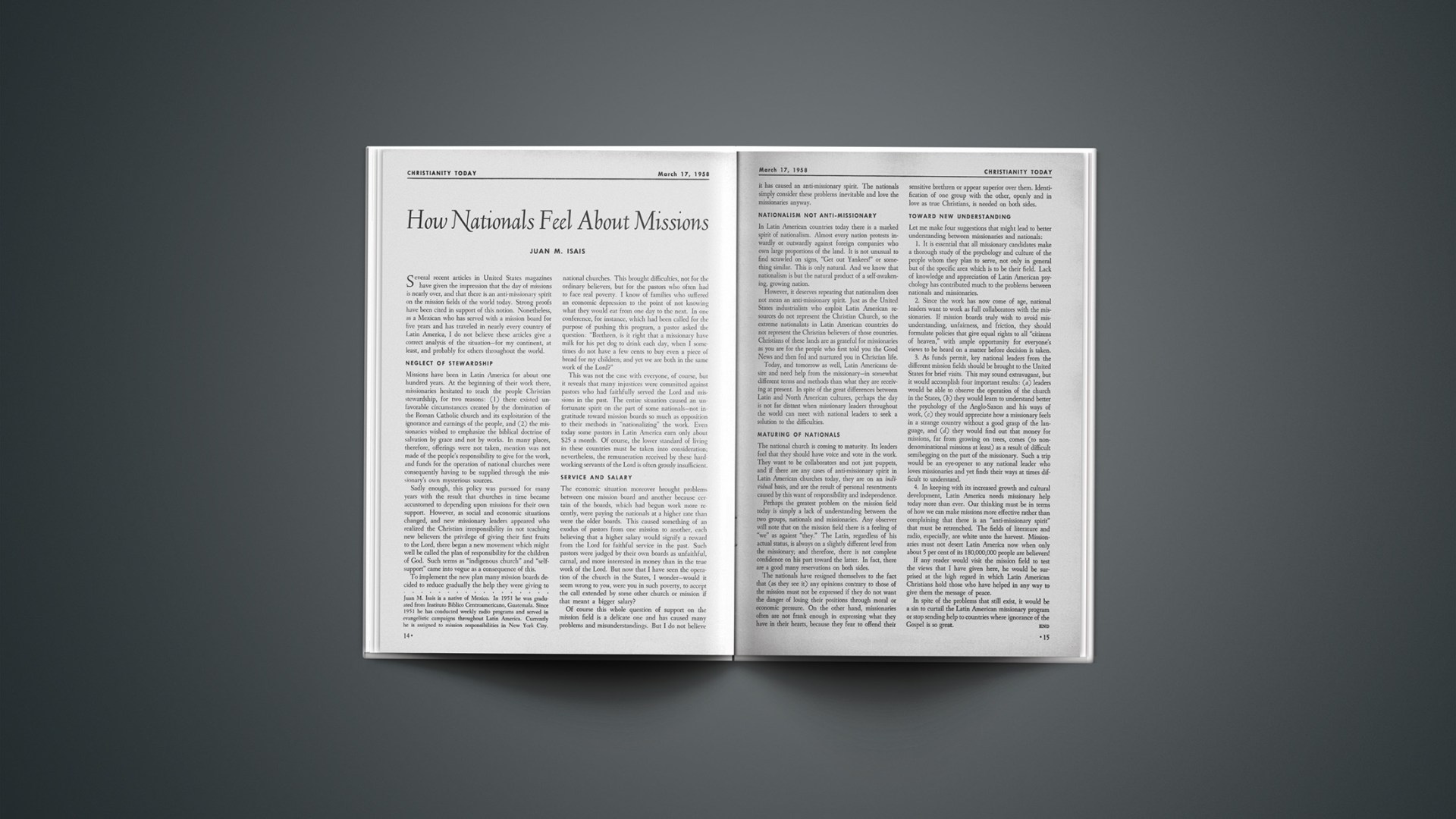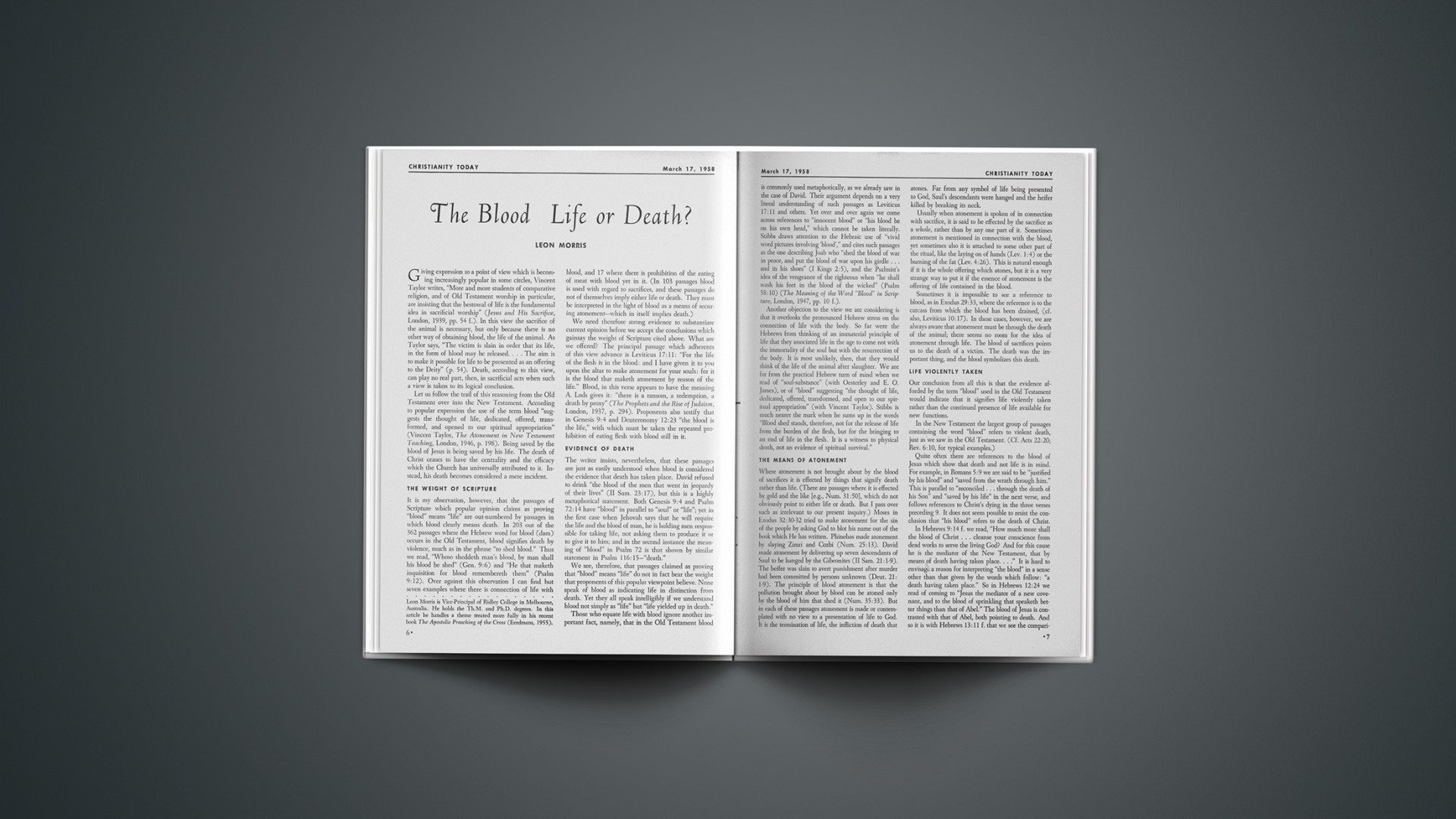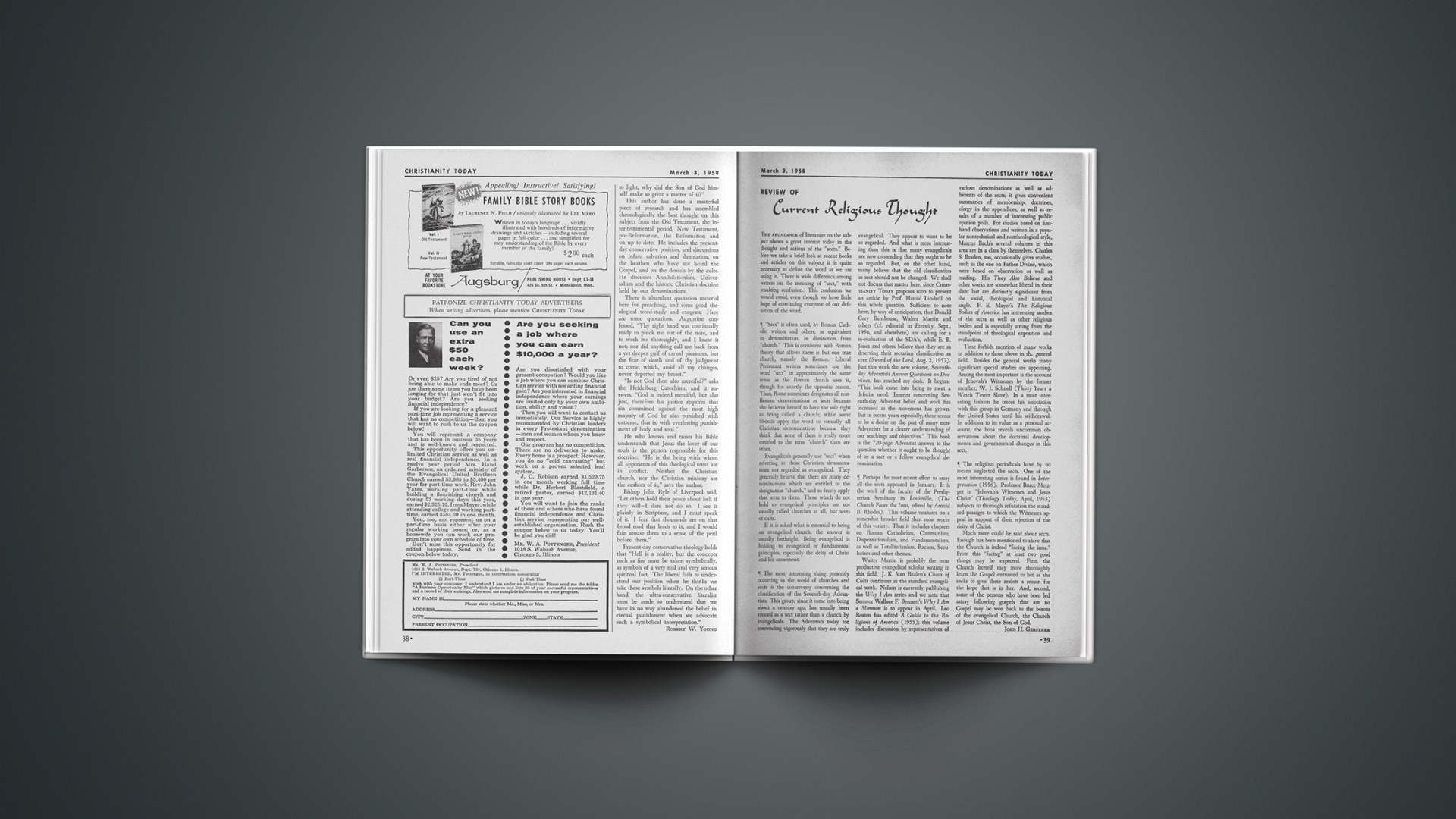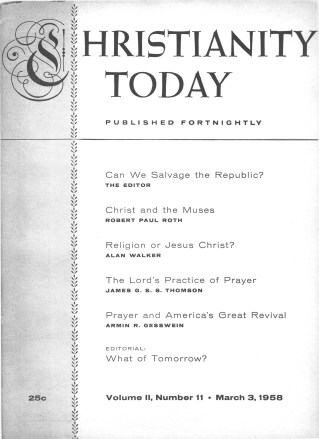First Epistle To The Corinthians
Paul’s first epistle to the Corinthians has throughout the centuries been prized by the Church as one of the most important component parts of the New Testament revelation. There are no solid grounds for doubting that Paul was the author of this document. Indeed, with regard to its authenticity Robertson and Plummer assert that “both the external and the internal evidence for the Pauline authorship are so strong that those who attempt to show that the Apostle was not the writer succeed chiefly in proving their own incompetence as critics.” The letter was written from Ephesus probably in the year 57 A.D.
On two occasions prior to its composition Paul had visited the city of Corinth, in the course, namely, of his second and third missionary journeys; and so he was familiar with the place and its inhabitants. Corinth was not only the metropolis of the Roman province of Achaia but also a great commercial centre on which traders converged from all directions. It was notorious, too, even in the Roman empire, as a centre of extreme profligacy and licentiousness. Beyond doubt Paul regarded it as a key point in the missionary expansion of the early Church, and certainly it was a city which presented a tremendous challenge to the Gospel: if the message of the Cross had power to reach and transform the lives of men and women living in the Corinthian cesspool, then it was powerful indeed! And this is precisely what happened. The Apostle had come to them “in weakness and in fear and in much trembling,” determined, however, not to know anything among them “save Jesus Christ, and him crucified,” and therefore to shun the arts of oratory and the persuasions of philosophy (both so attractive to the Greek mentality), in order that their faith should stand, “not in the wisdom of men, but in the power of God” (2:1–5). As the result of his preaching, which was “in demonstration of the Spirit and of power” (2:4), souls had been saved and the Christian church established in Corinth, as a light in a dark place. It was, moreover, a church enriched in everything in Christ, “in all utterance and all knowledge” (1:5, 7).
Rebuke Of Errors
But it was not long before serious errors both of doctrine and practice, which threatened the well-being and even the survival of the church, arose within the ranks of the believers; and it is to the correction of these errors that I Corinthians is mainly devoted. In the first place, deplorable divisions had split the church into hostile factions. Some claimed to be followers of Paul, others of Apollos, others of Peter and others of Christ—these last evidently pretending to some special and exclusive connection with Christ which reflected adversely on the spiritual genuineness of all the rest. Such schisms were an outward negation of the fundamental oneness of all believers in Christ (cf. Gal. 3:28). One can almost detect the note of horror as Paul demands: “Is Christ divided? Was Paul crucified for you? or were ye baptized into the name of Paul?” (1:12f.). It was Christ he had preached in Corinth, not himself (2:2). He and Apollos and Peter were among the foolish, weak, base and despised things, yes, and the nonenities, whom God had chosen for the work of the Gospel. It is Christ Jesus, and no one else, who is everything to the believer—wisdom, righteousness, sanctification and redemption (1:26–30). The conclusion, therefore, is obvious: that all glorying should be in the Lord alone (1:29, 31; cf. Jer. 9:23f.). Paul and Apollos were not overlords, but only ministers (that is, servants) through whom the Corinthians had come to faith in Christ (3:5; 4:1ff.) They had planted and watered the good seed; but it was God who had given the harvest: “So then neither is he that planteth anything, neither he that watereth; but God that giveth the increase” (3:6, 7). By giving credence to the wisdom of this world and glorying in men, the Corinthians had been deceiving themselves and dishonouring God (3:18ff.).
To be looked on as a denominational leader was abhorrent to Paul. After all, what sort of men had the world seen the apostles to be?—men “doomed to death,” fools for Christ’s sake, weak, despised, hungry, thirsty, naked, buffeted, homeless, toiling, reviled, defamed, “made as the filth of the world and the offscouring of all things” (4:10–13). Paul desired as his followers only those who were willing to imitate him in this Christ-like humility of daily self-abnegation and cross-bearing and devotion to Christ (4:14–16; 11:1). Far from showing humility, however, the Corinthians had been puffed up in the vaunting pride of their factions (4:6) and, at least some of them, in contempt of Paul, their absent Apostle (4:18). In fact, the leaven of the old life was still active in them, puffing them up to such an extent that they had even condoned a case of incest in their midst and had failed to put the offender away from themselves (5:1–5, 9–13). It is well known that even a little leaven permeates and acts upon the whole lump. As partakers, therefore, of Christ, their Passover Lamb who had been sacrificed for them, they must ensure that the old leaven is purged out (5:6–8; an allusion to the ceremonial of Exod. 12:3ff. and 18ff.). The Christian’s body is covered by redemption as well as his soul; indeed, his body is the temple of the Holy Spirit, and sins of the flesh defile that temple. Having been bought with a price, the Christian is no longer his own and therefore must glorify God in his body (6:15–20).
Yet, despite this serious lapse of discipline in the church, some of the Corinthian Christians had been taking legal action against fellow-believers for the settlement of petty disputes (6:1ff.). To drag brothers in the faith before secular pagan courts instead of resolving their quarrels in a spirit of Christian love within the community of the church or being willing to endure wrongs without retaliation, was something that shocked Paul profoundly (6:5–7). It was to ignore the fact that Christians are to judge angels—“how much more things that pertain to this life?” (6:3); and that unrighteous and unregenerate men, however exalted their authority in this world, will not inherit the kingdom of God (6:9). The expression “Know ye not …” occurs no less than seven times in chapters 3 to 6 (3:16; 5:6; 6:3, 9, 15, 16, 19). It implies a rebuke to the Corinthians and the Apostle’s disappointment that believers who had been enriched with all knowledge should have permitted such disharmony and irregularity to flourish within their circle. Their behaviour could not be reconciled with their knowledge.
Answers To Questions
The main purpose of chapters 7 to 16 is to answer a number of questions which the Corinthian Christians had asked in a letter sent to Paul (possibly in response to an earlier, but no longer extant, letter of his to them, to which he refers in 5:9). This is apparent from the clause which introduces this section of the epistle: “Now concerning the things whereof ye wrote …” (7:1) and from the repetition of the phrase “now concerning …” at the beginning of chapters 8, 12, and 16. The matters in question are as follows:
(i) Whether or not to marry (ch. 7).—The unmarried person has greater freedom for the service of the Lord (v. 32f), but it is no sin to marry (v. 28), and it is certainly better to marry than to burn with passion (v. 9). He offers advice to persons in a variety of circumstances. Paul’s remarks should be understood within the setting of the time of stress through which the young Church was then passing (v. 26).
(ii) Whether or not to eat meat that had been sacrificed to idols (chs. 8 to 10).—An idol is nothing, a no-god, for there is but one God (8:1–6), and a Christian has reasonable liberty in deciding an issue of this kind, provided always that through the exercise of this liberty he does not place a stumblingblock in the way of a brother who is weaker and less well instructed than himself (8:7–13). Paul’s great concern is that nothing should hinder the Gospel of Christ (9:12, 16, 19ff.). Self-control in all things is important (9:24–27). Christians should be warned by the example of the Israelites who, privileged and blessed like themselves, had fallen away into idolatry, committed fornication (idolatry and impurity are always closely connected) and shown gross ingratitude, with the result that God’s displeasure had come upon them (10:1–13). Believers are subject to the same temptations, but the same God is ever at hand to deliver them (10:13). They must therefore flee from idolatry (10:14ff.), remembering that, while everything may be lawful, everything is not edifying, that they have to consider others as well as themselves (10:23f.), and that all they do should be done to the glory of God (10:31).
(iii) How spiritual or charismatic gifts should be used in the Church (chs. 12–14). The Holy Spirit apportions different gifts and functions to different individuals in accordance with his sovereign will (12:1–11), not, however, with the intention that those so favored should become individualistic; for they must always remember that they are all members of the one body, mutually interdependent, so that there should be no schism in the body; and this applies equally to apostles as to those who exercise some humbler function (12:12–30). In all and above all they are to follow after charity (12:31; 14:1), which the Apostle extols in the famous hymn of chapter 13. Charity, unlike themselves, is not puffed up (13:4) and will outlast the more spectacular gifts such as prophecies, tongues, and knowledge (13:8). The right use of the charismatic gifts is explained in chapter 14. If they are productive of discord, disorderliness, and unintelligent worship (as they had been in the Church at Corinth), then they are being misused. Everything must be done with the understanding (14:9, 15, 20), for the edification of the church (14:12, 26) and in a decent and orderly manner (14:40).
(iv) How money should be collected for the relief of the poverty-stricken saints at Jerusalem (16:1 ff.). Regularly, on the first day of each week, every one was to lay by money according to the measure of his prosperity, so that there might be no feverish and forced last-minute collection when Paul arrived to receive and convey their gifts to Jerusalem.
There are three other matters on which Paul writes in this epistle and which have not so far come within the scope of our survey. They are dealt with in chapters 11 and 15. Firstly, the Apostle insists on the unseemliness of women having their heads uncovered during public worship (11:2–16). This may well have been another subject about which the Corinthians had written to Paul requesting instruction. Secondly, he rebukes them sternly because of deplorable excesses of selfishness and irreverence which, so he had learnt, characterized their gatherings together to partake of the Lord’s Supper (11:17–34). This passage contains the earliest of the four New Testament accounts of our Lord’s institution of this sacrament.
Thirdly, there is the great fifteenth chapter explaining the doctrine of the resurrection of the dead. Either their letter had informed him, or he had learnt in some other way, that some among them were affirming that there was no such thing as resurrection after death (v. 12). Paul emphasizes that Christ’s resurrection is an indisputable historic fact (vv. 1–8); that it is an indispensable article of the Gospel (vv. 13–19); that it is the guarantee, as the firstfruits of the ultimate harvest, of the future resurrection of all who fall asleep in Him (vv. 20–34); that the resurrection body is incorruptible, glorious, dynamic, spiritual (vv. 35–49); that those who are still alive at Christ’s coming will also share in this wonderful transformation (vv. 50–54); that through our Lord Jesus Christ God even now gives us the victory over sin and death (vv. 55–57); and that the knowledge of these great truths should cause us to be “stedfast, unmoveable, and always abounding in the work of the Lord,” assured that our labour in the Lord is not in vain (v. 58).
Finally, it will be seen that in his doctrine of the Church, as it emerges from this epistle, Paul was no perfectionist. Despite the shameful excesses and aberrations which it has been necessary for him to censure, despite their warring factions, their inflation with pride, their uncharitableness, despite their toleration of the most degrading vice and grave irreverence and disorderliness in public worship, and despite the fact that some among them were even denying the resurrection of the dead, he still addresses them as the Church of God (1:2); for the marks of the true Church are still to be found in Corinth, and the calling of Almighty God cannot be undone by hostile powers, however satanic, in their midst. (See Calvin’s comments on 1 Cor. 1:2 and also Inst. IV, i, 14.)
Literature
For English-speaking readers works by the following commentators may be recommended: Chrysostom (fourth century), Calvin (sixteenth century), Charles Hodge (1835, republished 1953), Lightfoot (on the Greek text of the first seven chapters only, posthumously published, 1895, in Notes on the Epistles of St. Paul), Robertson and Plummer (1911: International Critical Commentary, on the Greek text) and F. W. Grosheide (1953: New International Commentary on the New Testament under the Editorship of Professor N. B. Stonehouse).
PHILIP EDGCUMBE HUGHES


